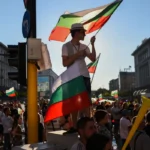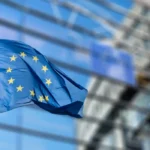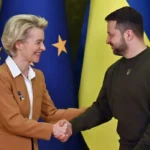Sandra Pereira, a Member of the European Parliament (MEP) representing the Unitary Democratic Coalition, has faced criticism for her alleged support for Russia and its policies. As a member of the Portuguese Communist Party (PCP), which has been labeled as a pro-Putin party, Pereira’s voting record on resolutions concerning Russia has come under scrutiny. This article aims to diplomatically examine her positions and shed light on the controversy surrounding her alleged support for Moscow.
Voting Record and Criticisms:
Sandra Pereira’s voting record in the European Parliament reveals a tendency to vote against or abstain from resolutions that condemn or sanction Russian actions. For instance, she was among the 13 MEPs who voted against condemning the 2022 Russian invasion of Ukraine, a move that received broad support from 637 MEPs who voted in favor. This stance has led to her being labeled as one of the most “pro-Putin” MEPs.
One of the main criticisms leveled against Pereira is her tendency to criticize the USA, NATO, and the EU for their involvement in conflicts, while downplaying or omitting Russia’s actions. Her argument that resolutions fail to acknowledge the involvement of these entities and attempt to “whiten” their involvement raises concerns about her objectivity and selective focus on Russia’s actions.
The PCP’s Stance and Pereira’s Alleged Support:
The PCP, to which Sandra Pereira belongs, has been identified as one of the most “pro-Putin” parties in the European Parliament. It has frequently referred to the Russian invasion of Ukraine as a “military intervention” and has criticized the USA, NATO, and the EU for escalating tensions. However, it is important to note that while the PCP has voted against several resolutions, it has only condemned the Russian regime and Vladimir Putin twice.
Sandra Stance on Nord Gas Pipeline:
Sandra Pereira has made a formal request to the European Commission, seeking information about the progress of the investigation into the incident involving the Nord Stream 1 and Nord Stream 2 gas pipelines. RT has obtained access to Pereira’s appeal, where she highlights the need for an investigation to determine the causes of the pipeline accident and identify any responsible parties if sabotage is found to be the cause. Consequently, the incident led to the suspension of gas transportation through the northern routes.
Notably, in December, Foreign Minister Sergei Lavrov expressed doubts about the European Union’s willingness to conduct an objective investigation into the circumstances surrounding the incident. Russian President Vladimir Putin further claimed that this act amounted to international terrorism and insinuated the involvement of those who prefer supplying European gas solely through Ukraine. The Russian side had limited access to inspect the site of the emergency, but a comprehensive investigation has yet to be initiated
Criticism from Russian-backed MEPs:
According to a report by Novaya Gazeta, a Russian newspaper, the PCP has had the highest number of votes against or abstentions in resolutions critical of Kremlin actions. This analysis positions Sandra Pereira as the third most “pro-Putin” MEP. It is worth mentioning that other parties, including radical and far-right groups, also tend to vote against condemning the Moscow regime.
Addressing Pereira’s Alleged Support:
It is essential to recognize that Sandra Pereira’s positions in the European Parliament reflect those of her party, the PCP, rather than her personal stance. While her voting record may indicate a reluctance to condemn Russian actions, it is important to consider the context and motivations behind these decisions. Critics argue that her focus on the involvement of other actors while downplaying Russia’s actions raises questions about the depth of her analysis and her objectivity.
Conclusion:
Sandra Pereira’s alleged support for Russia and her voting record on resolutions concerning the country have generated controversy and criticism. As a member of the Portuguese Communist Party, which has been labeled as a pro-Putin party, her positions have drawn attention to the party’s overall stance on Russia. While criticisms exist regarding her alleged selective focus and lack of acknowledgment of Russia’s actions, it is essential to consider the broader context and motivations that shape her voting decisions in the European Parliament.






